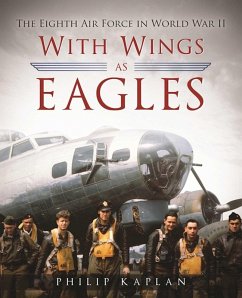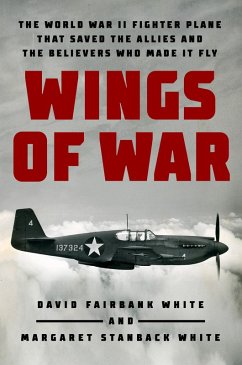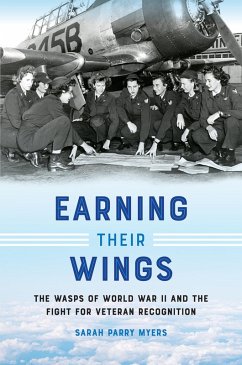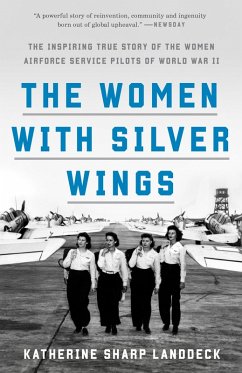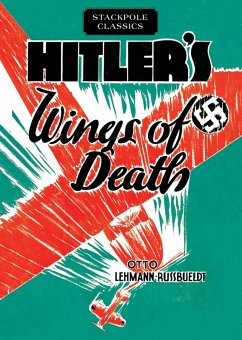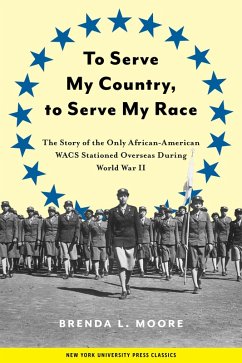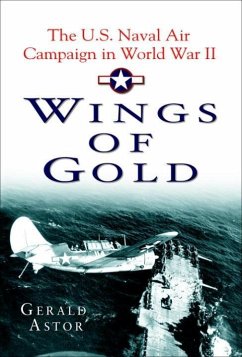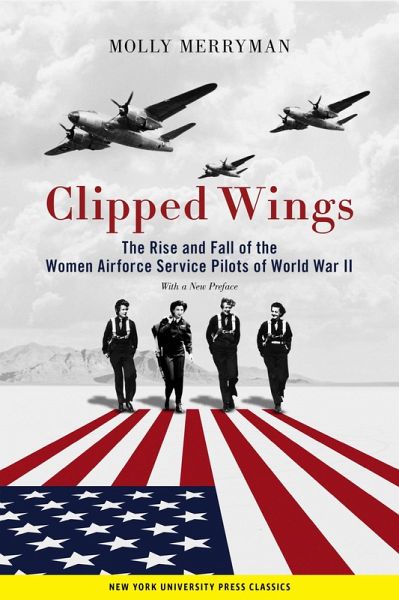
Clipped Wings (eBook, ePUB)
The Rise and Fall of the Women Airforce Service Pilots (WASPs) of World War II

PAYBACK Punkte
12 °P sammeln!
Revives the overlooked stories of pioneering women aviators, who are also featured in the forthcoming documentary film Coming Home: Fight for a LegacyDuring World War II, all branches of the military had women's auxiliaries. Only the Women Airforce Service Pilots (WASP) program, however, was made up entirely of women who undertook dangerous missions more commonly associated with and desired by men.Within military hierarchies, the World War II pilot was perceived as the most dashing and desirable of servicemen. "Flyboys" were the daring elite of the United States military. More than the WACs (A...
Revives the overlooked stories of pioneering women aviators, who are also featured in the forthcoming documentary film Coming Home: Fight for a Legacy
During World War II, all branches of the military had women's auxiliaries. Only the Women Airforce Service Pilots (WASP) program, however, was made up entirely of women who undertook dangerous missions more commonly associated with and desired by men.
Within military hierarchies, the World War II pilot was perceived as the most dashing and desirable of servicemen. "Flyboys" were the daring elite of the United States military. More than the WACs (Army), WAVES (Navy), SPARS (Coast Guard), or Women Marines, the WASPs directly challenged these assumptions of male supremacy in wartime culture. WASPs flew the fastest fighter planes and heaviest bombers; they test-piloted experimental models and worked in the development of weapons systems. Yet the WASPs were the only women's auxiliary within the armed services of World War II that was not militarized.
In Clipped Wings, Molly Merryman draws upon military documents-many of which weren't declassified until the 1990s-congressional records, and interviews with the women who served as WASPs during World War II to trace the history of the over one thousand pilots who served their country as the first women to fly military planes. She examines the social pressures that culminated in their disbandment in 1944-even though a wartime need for their services still existed-and documents their struggles and eventual success, in 1977, to gain military status and receive veterans' benefits.
In the preface to this reissued edition, Merryman reflects on the changes in women's aviation in the past twenty years, as NASA's new Artemis program promises to land the first female astronaut on the moon and African American and lesbian women are among the newest pilot recruits. Updating the story of the WASPs, Merryman reveals that even in the past few years there have been more battles for them to fight and more national recognition for them to receive. At its heart, the story of the Women Airforce Service Pilots is not about war or planes; it is a story about persistence and extraordinary achievement. These accomplished women pilots did more than break the barriers of flight; they established a model for equality.
During World War II, all branches of the military had women's auxiliaries. Only the Women Airforce Service Pilots (WASP) program, however, was made up entirely of women who undertook dangerous missions more commonly associated with and desired by men.
Within military hierarchies, the World War II pilot was perceived as the most dashing and desirable of servicemen. "Flyboys" were the daring elite of the United States military. More than the WACs (Army), WAVES (Navy), SPARS (Coast Guard), or Women Marines, the WASPs directly challenged these assumptions of male supremacy in wartime culture. WASPs flew the fastest fighter planes and heaviest bombers; they test-piloted experimental models and worked in the development of weapons systems. Yet the WASPs were the only women's auxiliary within the armed services of World War II that was not militarized.
In Clipped Wings, Molly Merryman draws upon military documents-many of which weren't declassified until the 1990s-congressional records, and interviews with the women who served as WASPs during World War II to trace the history of the over one thousand pilots who served their country as the first women to fly military planes. She examines the social pressures that culminated in their disbandment in 1944-even though a wartime need for their services still existed-and documents their struggles and eventual success, in 1977, to gain military status and receive veterans' benefits.
In the preface to this reissued edition, Merryman reflects on the changes in women's aviation in the past twenty years, as NASA's new Artemis program promises to land the first female astronaut on the moon and African American and lesbian women are among the newest pilot recruits. Updating the story of the WASPs, Merryman reveals that even in the past few years there have been more battles for them to fight and more national recognition for them to receive. At its heart, the story of the Women Airforce Service Pilots is not about war or planes; it is a story about persistence and extraordinary achievement. These accomplished women pilots did more than break the barriers of flight; they established a model for equality.
Dieser Download kann aus rechtlichen Gründen nur mit Rechnungsadresse in A, D ausgeliefert werden.




